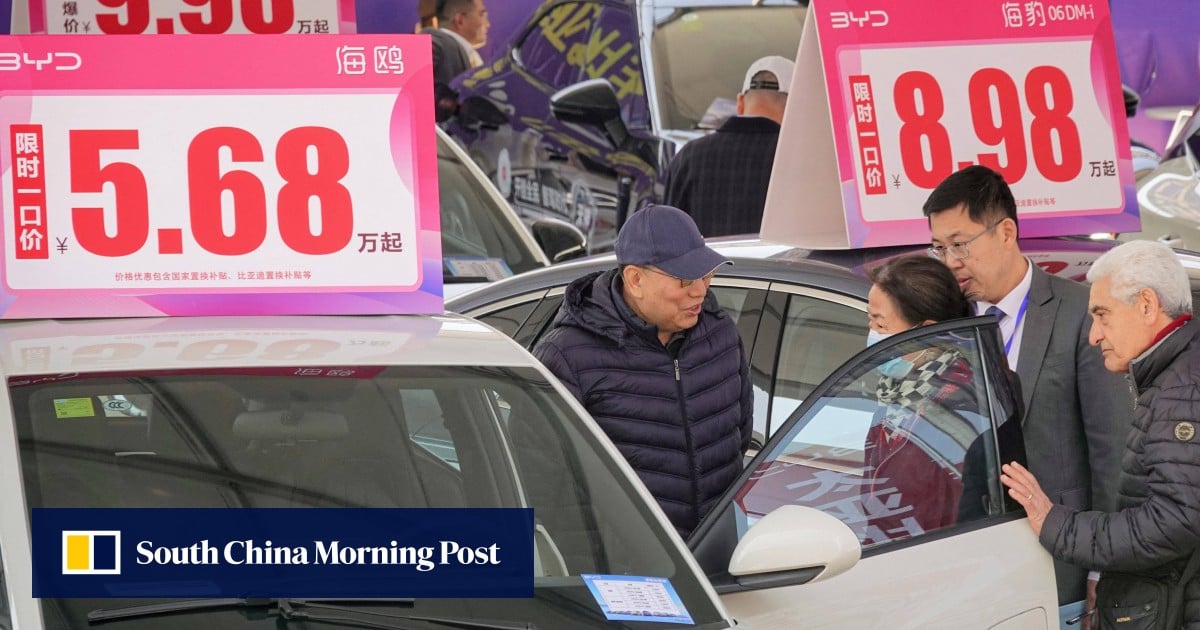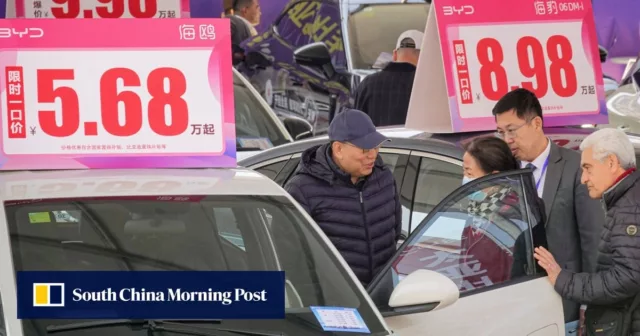
Advertisement
On Tuesday evening, the 14 companies – including state-owned FAW and GAC Group – said the move came as a result of recent regulatory guidance on the sustainable development of China’s automotive sector.
On paper, carmakers delay payments so they can use those funds to wage a price war, creating a hidden and interest-free debt. But for suppliers of components – from batteries for electric vehicles (EVs) to car seats – longer payment cycles can cause cash flow problems.
“The concerted action by the leading carmakers represents the first step that Chinese authorities [have taken] to regulate the automotive industry,” said Chen Jinzhu, CEO of consultancy Shanghai Mingliang Auto Service. “Automotive companies will eventually refrain from offering steep discounts as government agencies tighten oversight of their sales strategies.”
On May 31, the Ministry of Industry and Information Technology said authorities would punish carmakers that unreasonably slashed vehicle prices to vie for market share, though it did not detail the measures that Beijing would take.
Advertisement
Prolonged payment cycles are seen by analysts and industry officials as an irregularity in China’s auto industry. Carmakers often force their suppliers to accept delayed payments in exchange for big orders.
According to data from Bloomberg, Shenzhen-based BYD took 275 days to pay its suppliers in 2023, up from 219 in 2022 and 198 in 2021. Data for 2024 was not available.









